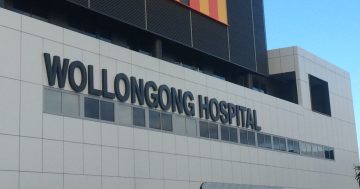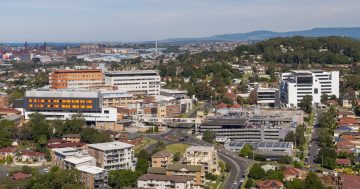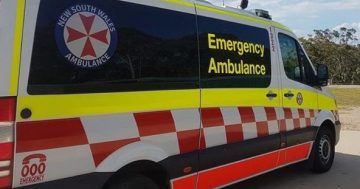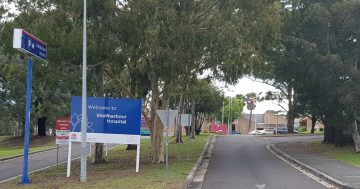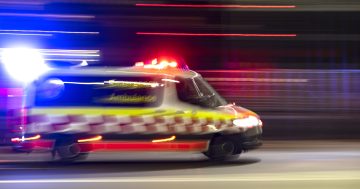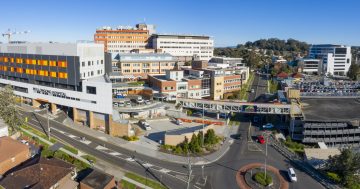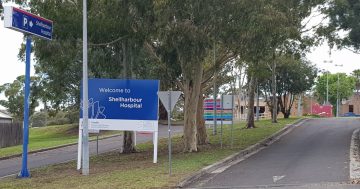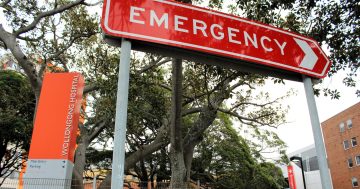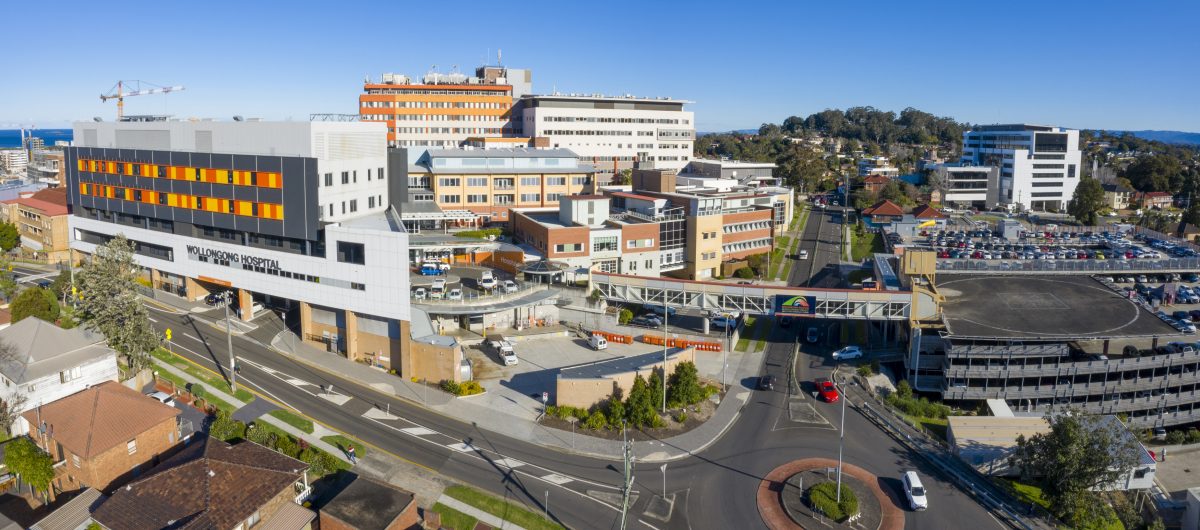
Hundreds of patients have reviewed the outpatient cancer care services at Wollongong and Shoalhaven hospitals. Photo: Planning NSW.
Cancer care has become more culturally sensitive in the Illawarra and Shoalhaven, with a new survey revealing significantly more patients felt their beliefs were respected in the region’s outpatient clinics.
The report by the Bureau of Health Information (BHI) showed high praise for many of the services and staff at the Wollongong and Shoalhaven clinics, but ongoing issues in areas of communication and access continued to be a challenge.
Illawarra Shoalhaven Local Health District (ISLHD) co-director cancer services Nicola Ryan said the feedback demonstrated the “level of commitment and professionalism” of the hard-working team.
“The positive feedback regarding respect, kindness and the clear communication of information is especially encouraging, as we know that people’s experiences with us are a vital part of the holistic care we strive to provide,” Ms Ryan said.
An area that showed significant improvement in the feedback from patients that used the facilities at Wollongong Hospital was the 98 per cent who reported clinic staff ”always” respected their cultural or religious beliefs, compared with just 90 per cent having felt that way in 2023.
Shoalhaven also experienced an increase in satisfaction in this area, with 97 per cent reporting the positive result, opposed to 92 per cent in the previous year.
This had been an area of focus for ISLHD, with programs implemented in recent years to target these specific patients.
“The district is dedicated to making culturally and linguistically diverse (CALD) communities feel welcome, supported and included when accessing cancer care,” Ms Ryan said.
“To achieve this, we introduced a tool that identifies the specific needs of CALD communities within our service, ensuring equitable access and the best possible patient experience.”
Patients in Wollongong reported feeling more empowered in the decision-making about their care, with 84 per cent ”definitely” involved as much as they wanted, up from 78 per cent last year.
However, other parts of the experience were reported to not be quite up to scratch, with 67 per cent of patients at Wollongong and 72 per cent at Shoalhaven not informed how long they would have to wait to be seen.
“The results also let us know areas for improvement, such as reinforcing the need for clear and effective communication,” Ms Ryan said.
Fortunately for most, the wait was not too long, with 95 per cent of cases in Wollongong and 91 per cent at Shoalhaven starting within 30 minutes of the scheduled appointment time.
Access to Wollongong Hospital continues to be a problem, with more than one in five respondents reporting having issues with parking.
However, Ms Ryan said the Illawarra Cancer Care Centre (ICCC) at the hospital had two dedicated parking locations.
“One is located directly outside the cancer centre and is for people undergoing radiotherapy treatment, and the other is within Wollongong Hospital’s multistorey carpark,” she said.
“We also encourage patients to access the concession rates (three hours free) wherever possible in the main carpark and urge people who are receiving treatment at the ICCC to speak directly with staff if they are unsure of the dedicated parking arrangements.”
Parking options and transport alternatives for Wollongong Hospital are currently being investigated as part of the Wollongong Health Precinct Strategy.
Initial community consultations for the place-based study were held earlier in the year, with the Minister for Planning and Wollongong MP Paul Scully expected to release further details on the process in the coming months.
“We are still reviewing the feedback and will have an update for the community before the end of the year,” Mr Scully said.
The community can subscribe to updates on the project through the NSW Department of Planning website.









